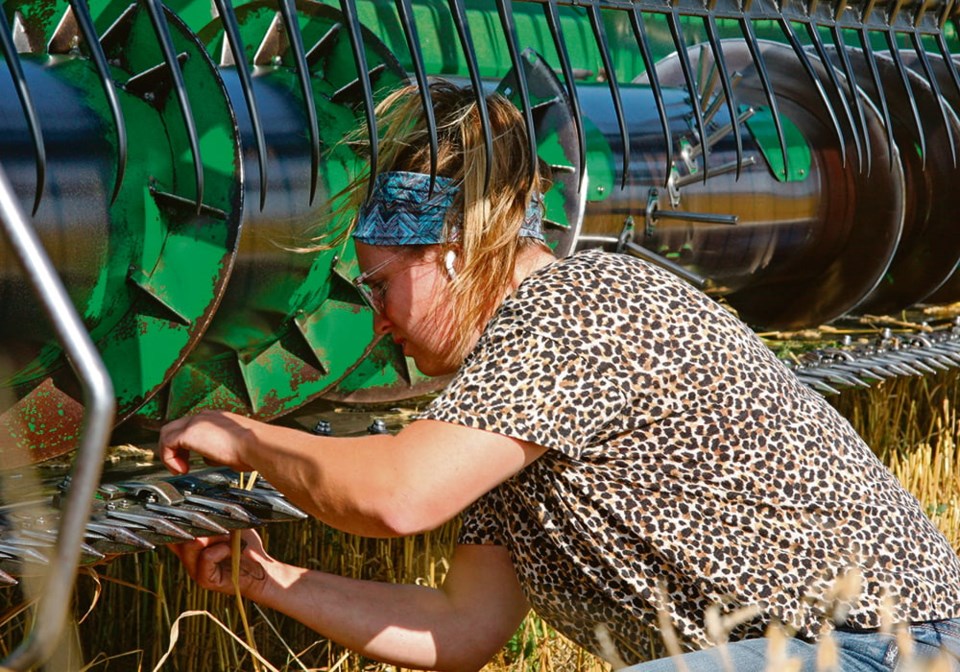In just seven years, Canadian agriculture could face a workforce shortage of 123,000 people.
That’s according to the 2019 RBC report called Farmer 4.0: How the Coming Skills Revolution Can Transform Agriculture.
Yet, it’s still possible for the country to increase the annual gross domestic product by $11 billion in the same time frame, from now until 2030, by changing the way food is produced and marketed. The report suggested this could be done by beefing up the skill set of farm workers, developing and embracing technological advancements, and by filling the labour shortage in the agricultural industry.
The agricultural labour shortage has many causes. At the top of the list is baby boomers not being replaced by new workers.
According to the report, 600 fewer young people are entering the ag sector each year, despite a 29 percent jump in students enrolling in post-secondary agricultural programs. As well, as the rural population dwindles, cities grow and that means more people become more removed from the farm and are less aware of how their food is produced.
Yet, given Canada’s broad expanse of fertile land and natural resources, the country could be in a great position to speed up production.
“Scarcity breeds creativity, and problems lead to innovative thinking,” said Heather Watson, executive director of Farm Management Canada. “It’s important to remember our agricultural sector is founded in innovation and problem-solving. If we could put as much energy into the labour shortage as we do to yield and growth rates, imagine what we could accomplish.”
One way that the farm labour shortage can partially be addressed is through programs like A-Way to Work, run by International Rural Exchange Canada (IREC).
“The Canadian government increased our work permit quota numbers this year in an effort to help Canadian industry,” said Anita Warriner, executive director of IREC. “We have already seen a marked increase in new host applications in 2023, and the limiting factor is the number of candidates we get from our partners or direct applications. We expect to place about 200 trainees on farms in 2023, but we know the demand is vastly greater and will continue to increase.”
She said the program offers an opportunity for foreign program participants between the ages of 18 and 35 to be placed in paid agricultural positions at host farms across Canada. Most applicants have a farming background or have completed education in farming or other trades such as agricultural mechanics, making their skill set valuable to host families.
“The relationships built can be very special and lifelong,” Warrinersaid. She and her family have been hosts with IREC since 2003. “My husband and I are retiring from farming this year and put in our final crop last spring. When we let our former trainees know, several of them came back to help us with harvest. The laughs we shared around the table, and the memories related and created reminded us again of how much our trainees have enriched our lives and farming career.”
Richard Stevenson and his wife, Mary Ann, who farm south of Kenton, Man., have been involved with the agricultural exchange program for 49 years, first with Richard, as a participant with IAEA and more recently as a repeat host family for IREC. They, and their family, have made lifelong friendships with the trainees they have hosted and with host families.
The owner of the New Zealand farm that hosted Richard many years ago, came to Canada in his 60th year to experience a harvest on the Stevenson farm, fulfilling a lifelong dream.
“It was a highlight of his life and something he never thought he would do as he had missed the opportunity when he was young,” said Mary Ann of his experience. “He and his family are a great example of lifelong friends (we’ve made) as a result of this program.”
They recognize the expertise of the staff at IREC to match placements, support trainees and host families, and to handle the red tape.
Warriner said the program offers a chance for cultures and people from diverse backgrounds to mingle and form friendships.
“I know that it makes the world a better place,” she said. “When we meet people from other countries and cultures and live and work beside them, we come to understand both that the world is full of good people, and that Canada is a great place to live. As we showcase rural culture and share our wide-open spaces, we value our own experiences and opportunities more.”

